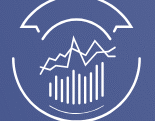
If you’re looking to trade commodities like nickel, zinc, oil, gold, wheat, cryptocurrency, you’ll need a reliable trading platform. Below is a breakdown of the best platforms for different types of commodity trading:
1. Futures & Options Trading Platforms
(Best for direct exposure to commodity prices with leverage)
A. London Metal Exchange (LME)
-
Features:
-
Global benchmark for industrial metals.
-
Futures & options contracts (cash-settled or physical delivery).
-
High liquidity but requires a broker with LME access.
-
-
Brokers: Marex, StoneX, Interactive Brokers (limited access).
B. CME Group (COMEX & NYMEX)
-
Key Products: Gold, Silver, Copper, Oil, Natural Gas, Wheat, Corn
-
Features:
-
Largest derivatives exchange (US-based).
-
Trades via futures (CL for crude oil, GC for gold, HG for copper).
-
Options available for hedging/speculation.
-
-
Brokers: TD Ameritrade, NinjaTrader, TradeStation.
C. ICE (Intercontinental Exchange)
-
Key Products: Brent Crude, Coffee, Sugar, Cocoa
-
Features:
-
Major for energy & soft commodities.
-
Futures & options trading.
-
-
Brokers: Interactive Brokers, AMP Futures.
2. CFD & Spread Betting Platforms
(Best for retail traders with leverage, no physical delivery)
A. MetaTrader 4/5 (MT4/MT5)
-
Brokers: Pepperstone, IC Markets, FXPro.
-
Features:
-
Trade commodities as CFDs (no ownership).
-
High leverage (up to 1:100).
-
Advanced charting & algo trading.
-
B. Plus500
-
Pros: User-friendly, low spreads.
-
Cons: Limited fundamental analysis tools.
C. IG Markets
-
Pros: Wide range of commodities, strong regulation (FCA, ASIC).
-
Cons: Higher fees for small accounts.
3. Stock & ETF Trading Platforms
(Best for long-term investors in mining/oil stocks & commodity ETFs)
A. Interactive Brokers (IBKR)
-
Pros: Low fees, global market access.
-
Cons: Complex for beginners.
B. TD Ameritrade (Now Schwab)
-
Pros: Free ETF trading, strong research tools.
-
Cons: Higher margin rates.
C. eToro
-
Pros: Social trading, copy-trading features.
-
Cons: Limited direct commodity exposure (mostly CFDs).
4. Physical & Spot Commodity Platforms
(For buying/selling physical metals, energy, or agricultural products)
A. BullionVault (Gold & Silver)
-
Buy/sell physical gold & silver with storage.
B. Kitco Metals
-
Physical delivery of precious metals.
C. S&P Global Platts (Oil, Gas, LNG)
-
Industry benchmark for energy spot prices.
5. Cryptocurrency-Based Commodity Platforms
(Tokenized commodities like gold-backed crypto)
-
Binance (largest by volume, altcoins, futures)
-
Coinbase (user-friendly, regulated, good for beginners)
-
Kraken (strong security, staking, futures)
-
Bybit (derivatives-focused, copy trading)
-
KuCoin (altcoin selection, passive income products)
- PAX Gold (PAXG) – 1 token = 1 oz gold.
Which Platform Should You Choose?
| Trader Type | Best Platform |
|---|---|
| Professional Futures Trader | CME Group, LME via Interactive Brokers |
| Retail CFD Trader | MetaTrader 5 (Pepperstone, IC Markets) |
| Long-Term Investor | Schwab, IBKR (for ETFs & stocks) |
| Physical Buyer | BullionVault, Kitco |
Where to Get Free Commodity Market Updates:
✅ Reuters Commodities – https://www.reuters.com/markets/commodities
✅ Bloomberg Commodities – https://www.bloomberg.com/markets/commodities
✅ Investing.com Commodities – https://www.investing.com/commodities/
✅ TradingView Commodity News – https://www.tradingview.com/news/commodities/
